In what appears to be a first for Australia, the Victorian Civil and Administrative Tribunal (VCAT) has ordered a Mitsubishi dealership to refund the purchase price of a man’s Triton over inaccurate fuel consumption figures.
Triton owner, Zelko Begovic appeared before the VCAT to argue that he was misled by the laboratory-based NEDC Fuel Consumption sticker affixed to the Triton’s windscreen upon purchase. The VCAT has found that the 2017 model MQ Mitsubishi Triton did indeed use more fuel than was advertised and has ordered the dealership that sold the vehicle (Northpark Berwick Investments Pty Ltd – Berwick Mitsubishi), to refund the purchase price of $39,500 and take ownership of the used Triton from Mr Begovic.
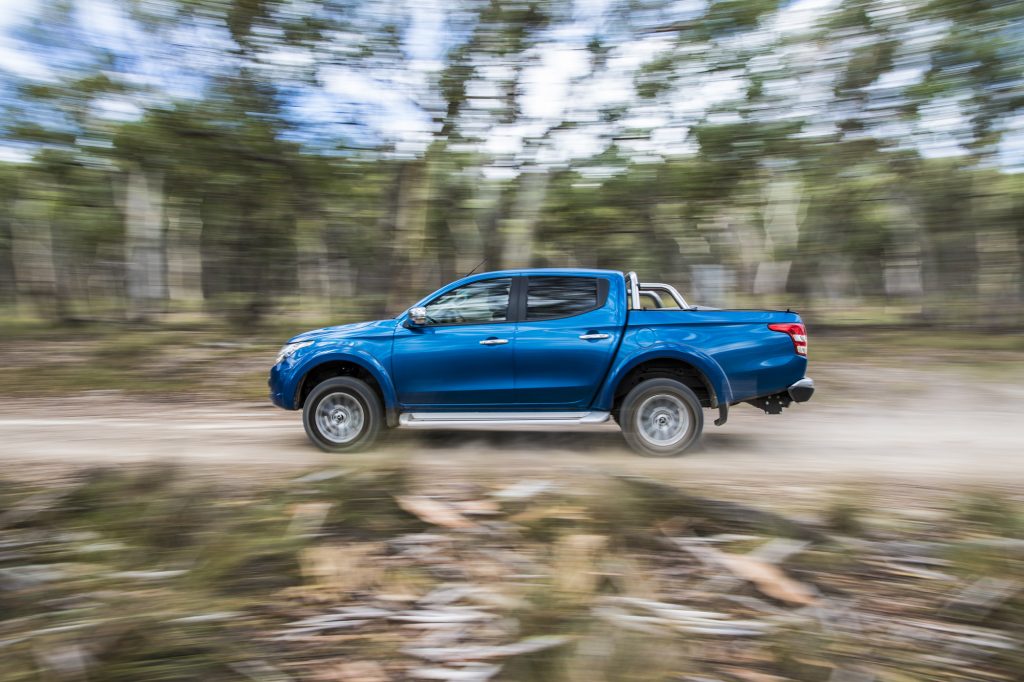
In documents and evidence presented to the VCAT, Begovic has claimed that the “vehicle’s actual fuel consumption is significantly higher than the fuel consumption represented on the label and that the label is misleading”. He then went on to state the vehicle is thus defective due to the excessive fuel consumption. Senior Member of the VCAT, L. Forde, found in favour of Begovic, and ordered that “the vehicle that is the subject of proceedings becomes the property of the first respondent (Northpark Berwick Investments)”.
Mitsubishi Motors Australia representatives appeared on behalf of the dealer at the VCAT hearing and during the proceedings, maintained that the fuel usage label was indeed correct. In a statement, they went on to say:
“Mitsubishi Motors Australia strongly disagree with the findings in a VCAT case with Mr Zelko Begovic that the stated fuel consumption on the label on his 2016 Triton GLS was misleading,” the statement said.
“The Tribunal took into account test results provided by the customer of their used vehicle, which was tested to a different methodology to the ADR81/02 standard outlined on the fuel consumption label. The testing used different standards to achieve a result, including vehicle load, fuel quality standard and the tests were outside laboratory conditions as they utilised portable testing equipment.”
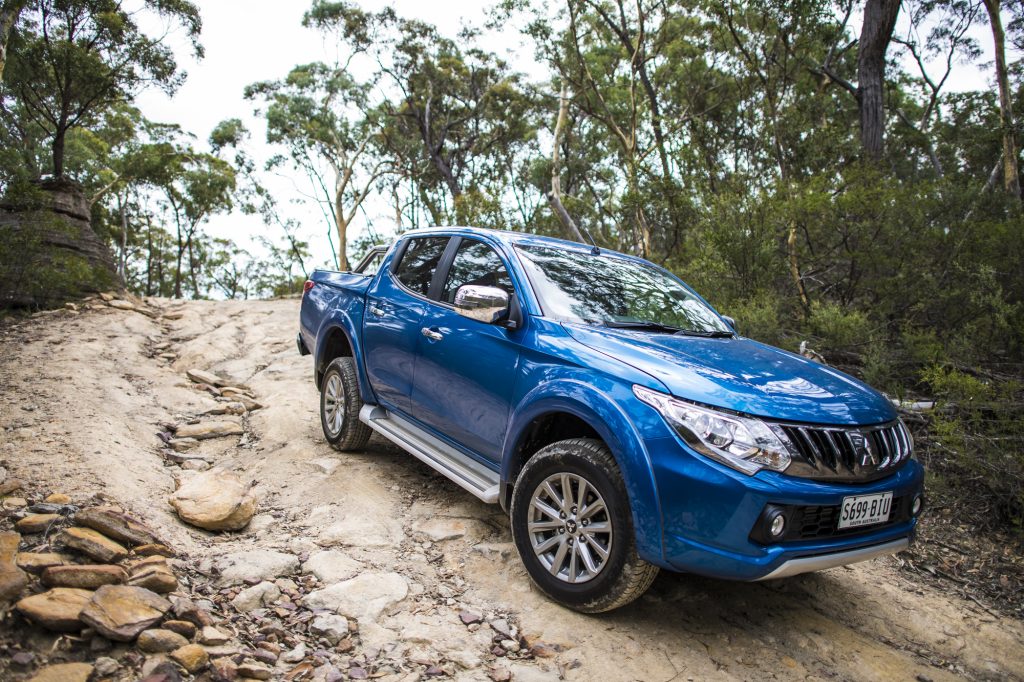
Where these findings become further interesting, it is the first time that a consumer has been able to prove their case, utilising real-world figures as opposed to the strict laboratory testing. We can only assume that there may be further cases to come up utilising the same methodology that Begovic has used and that we may see dealers and indeed manufacturers show ‘real-world’ figures into the future.
At this stage, Mitsubishi Australia plans to appeal the findings in the supreme court; we will bring you more as the story unfolds. Now that Mitsubishi has refunded the Triton owner, do you think this will be a common occurrence? Let us know in the comments below!



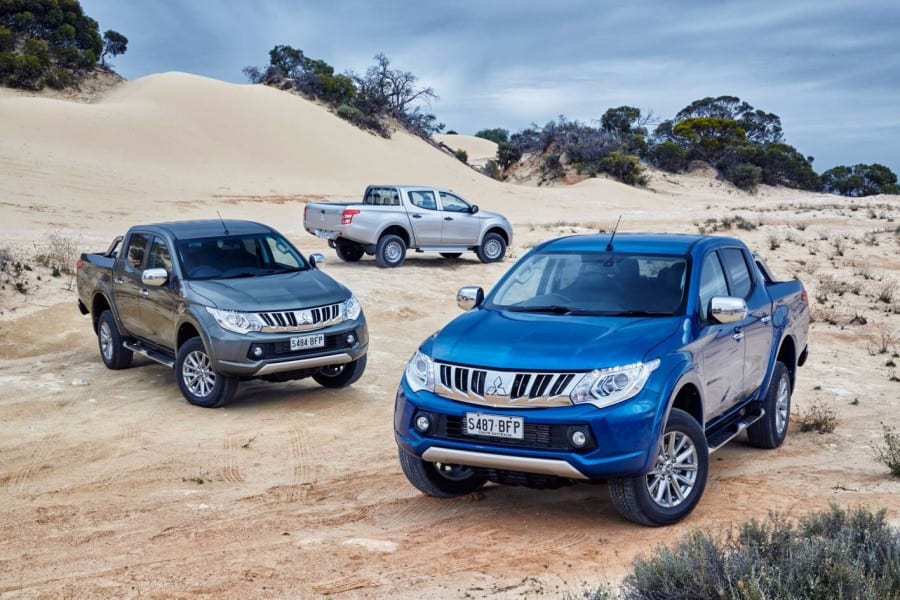

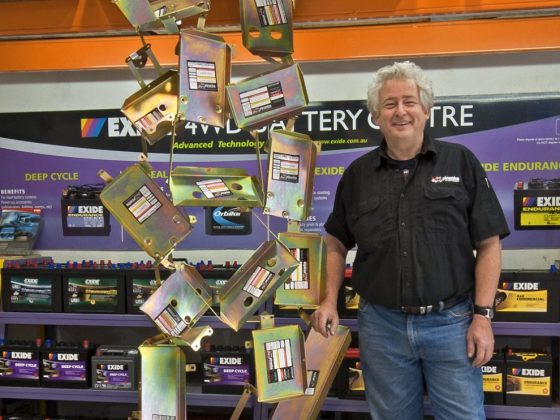
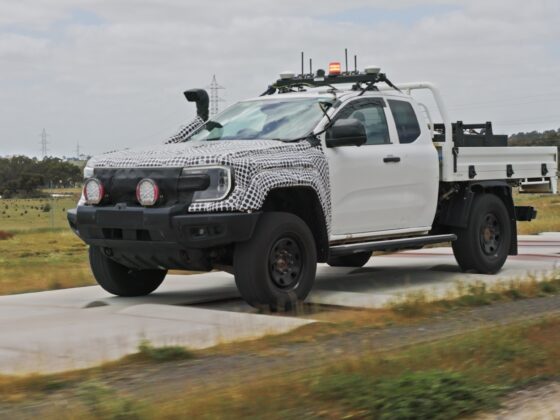
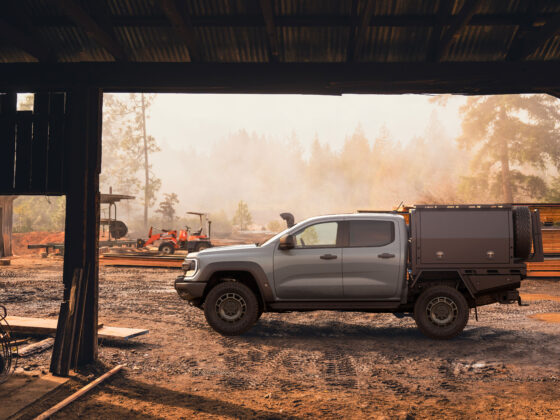


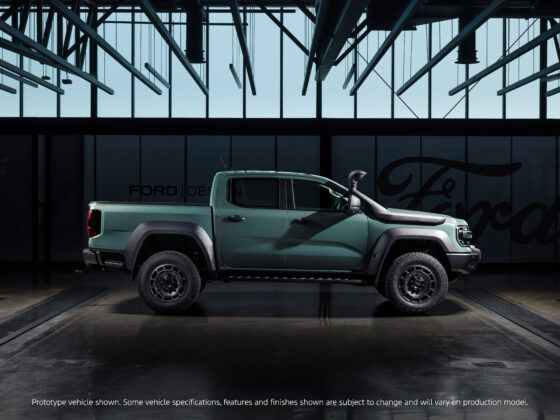


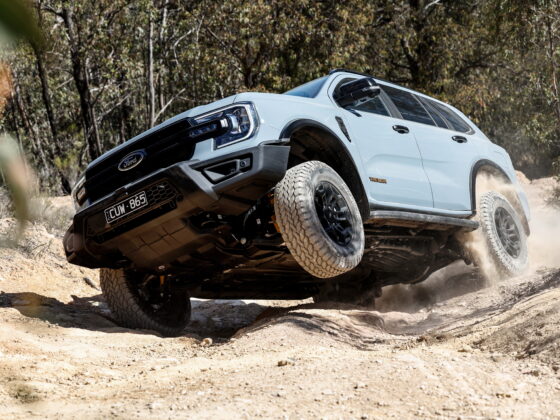
74 comments
This is a joke, I own one of these and yes it uses more because it gets loaded up and also when it’s not I do drive it quite heavy. I can’t believe that court hasn’t seen this. In any case who would own up to driving like a hoon in a matter like this. To prove it that I don’t I have no traffic offences in the last 15years so “I” must drive well. What a joke and in any case I love my Triton!
This bloke would have to be joking, every vehicle will use more than stated especially when you buy a 4×4 and use it as such. Sure hope he is going to enjoy a lot of walking because who in their right mind would want to sell him anything. Cheers
I purchased a Toyota fj cruiser in 2013 and have never got anywhere near the so called data advertised for the fj.
I have questioned this for 6 years with Toyota and mechanics.
My fj has been fitted with front rear bars etc but ran the car as a showroom car for two to three years before add ons which there wasn’t a great deal of difference.
When towing I average around 23 ltrs per 100 Klms.
Only reason I have not changed the car is because of the love of the vehicle.
The law system is broke, time to fix the stupidity that is the legal system.
I get different mileage from different company fuels, stand still and you get shafted.
Well i’ve seen it all now, what a ludicrous decision from VCAT to give a verdict like this. I may not be fully swept up on all the lab testing these companies complete in regards to fuel consumption but i am pretty sure its a guide and not a hard and fast setting to fuel consumption. Surely some of the responsibility falls on the driver in respect to the way they drive, what fuel they put in, traffic conditions, is the ute driven mainly in the city or on the freeway, tyre pressure etc etc etc. When these big companies do there testing its in controlled environments where all variants are controlled and known. For me that’s the main factor of my statement its done in a controlled environment not the real world.
Yes everyone knows the fuel economy is always higher than what is stated on the label, but doesn’t that just show how much of a load of bull the labelling is on all the cars. So maybe all of the manufacturers should use realistic fuel consumption figures on their labels instead of the fantasy figures they put in there, and things like this court case would not occur.
How come they don’t give us the figures. Most people take the Australian standard fuel test as a joke .Plus 20% usually for a standard car. More for the extra gear you put on it.
The DPF has a lot to do with the misleading figures, I traded a 2012 BT50 which used to get near exactly what the sticker quoted for a 2017 BT50 with the New DPF same figures quoted but this thing uses a third more fuel per hundred kilometres.
The DPF is active all the time and that one injector that feeds the DPF uses on average a third more fuel than the other five injectors put together.
Mazda feeds me the line that the car still uses the same fuel as the older models but within that said spiel they neglect to mention The DPF, there by circumnavigating the star rating.
I’m not sure but I think the Triton May have an active DPF as well and if they have I think it would be advisable for both companies to look at a way of making The DPF unit a passive system similar to the Isuzu diesels. Surely they have the ability to rejig the computer in their vehicles so the DPF only comes on when needed.
It seems to me that we are burning a third more fuel to run these anti pollution devices which have been put in place to stop diesel vehicles causing cancers , I am yet to see figures on the number of people who have been affected by said cancers but I have definitely seen the figures (dollar wise) every time I have to feed my vehicle at the service station.
I do agree the fuel consumption listed is typically wrong on the low side. But I do not think that getting a refund based on higher fuel use is correct. The tests are carried out in accordance with Australian standards that all vehicle manufacturers must use. If this is an issue it needs to be addressed at the standards level not at dealers/manufacturers.
They should do the same for the advertised payloads. I have yet to find a vehicle in Australia that goes anywhere near its advertised payload. Just weigh your ute and then deduct the ‘real’ tare from the GVM on the compliance plate. I have seen variations up to 590kg. If you bought a ute to carry a specific load and then found it can’t legally carry that load then you should get your money back. The dealers know the advertised payloads are wrong.
My 2010 MN Triton has had disgusting fuel cosumotion since purchase. At leadt averaging 4l100km worse than stated. With or without accessories don’t make much difference. Complaints to Mitsubishi fell on deaf ears until after forcing the matter I received confirmation that 12.5l/100km was wirhin acceptable tolerances to the 8.3l/100km advertised. What a crock. Logbooks don’t lie, Mitsubishi. Just dealers and vehicle manufacturers. Would never buy another Mitsubishi.
Gary the BT will soon come with Isuzu 3.0lt fitted and no DPF mate….
Np300 series 1 – similar issues… currently doing 11/100km – town driving… they need to have a closer look for sure.
If you take in to account speedometer/odometer error of new vehicles which is typically 5-10% higher than actual speed and distance consumers are robbed fuel economy, warranty and service interval by the same percentage.
This has been addressed the wrong way round. Fuel consumption is a function of driver attitude. Figures provided are to a standard and are thus benchmarks. When I buy I do not consider the absolute figure, but rather the comparative figure against other models of vehicle. If you force manufacturers to display absolute figures then that will still be wrong. Jeffery Leadfoot will always use more fuel than Penelope Patience. So who’s figure is advertised????
Best to keep the advertised figures as following an industrial standard test, so all vehicles can be considered in a comparative way.
This clown was lucky he had a judge versed more with perpetuating litigation than addressing a non-issue.
What a load of rubbish, that guy will never be able to buy a new car if he thinks the fuel consumption figures on the sticker is what he will achieve, anyone with any common sense knows that !!!. How can they rule in favour of the car owner, no doubt his testing wasnt done as per the ADR lab tests as stated on the label so unless you’re comparing apples with apples he shouldn’t have a leg to stand on, another example of the world going litigation mad. I hope Mitsy fight and win and that bloke gets his perfectly good Triton back.
So why do they have the stickers on the car, if not to mislead buyers.
Maybe Ford will have to come clean as well, I’ve spoken to several owners of Wild Tracks, and they are complaing of the same thing! And No larry leadfoots amongst them! Fuel conumption excessive, at 60kmh, but go over that with posted speed limits or tow a trailer, & you’re stopping more often for fuel.
Pretty sure if i advertised a breed of dog and claimed it pooped GOLD nuggets and they turned out to only be copper Im pretty sure someone would want to hold me accountable Simple if its not capable of the stated figures! Then refunds for all who have been deceived . I would have thought consumer law had this covered as false advertising
What a load of rubbish, everyone with half a brain knows the fuel consumption label is a guide of what was achieved in a controlled setting, real world usage could be higher or lower… its the way you drive, load, maintain the vehicle.
I own a 2012 Mitsubishi Pajero, and have always had better real world fuel usage figures than what is claimed by Mitsubishi, and I have a heavy right foot.
The problem is a stupid Judge , Uneducated and devoid of real world experience .
You can’t compare Lab test against real word ,The ”lab test” is to get a bench mark for all vehicles ,so a comparison can be made .
Then to come up with a completely different test as a comparison , What Drugs was the Judge on ?
Mitsubishi should send that Triton to the Crusher .
The Judge should be stood down for demonstrating that he/she is an idiot .
Perhaps the judge should read the comments and see how many different things can impact on fuel economy .
The only thing that will change is that all manufacturers will now include a disclaimer in their advertising that the test results may differ from real world fuel consumption. Can’t believe they don’t already do that.
I had a demo Colorado for 3 days and returned a combined consumption of 8.5L / 100kms . Purchased same model but lighter extra cab configuration and averaging 11L/100kms driving much more conservatively .
You could same I’m somewhat confused at this result , are they “tampering” with demos to get these figures ?
The sticker gives the buyer an indication of test done in a controlled environment. And to ADR standards
If all manufacturers use the same testing practices, then it’s for comparing the offerings. If you think that you can replicate the exact conditions on which the cars are tested in the real world, then you are clearly living under a rock. You will not be able to get the same fuel they used, they would have not tested it with your particular requirements in mind. It’s not misleading to buyers, it’s a guide. The fact that that guy won the case just goes to show how much people are taking advantage of the system. Seems people don’t want to take responsibility for their actions anymore.
Isuzu’s new 4JJ1 comes with DPF, so I don’t think you’ll find the next BT with no DPF.
These figures should be done with pay load in the vehicle because no tradie drives around empty
Some comments question the reliability of the figures. These test originated in USA and are mandated by the ADR system. Manufacturers are only complying with Government regulations to provide comparisons demanded decades ago when you relied on word of mouth.
These figures reflect tests that use consistent idealistic methods to allows reliable comparisons between various comparable offerings that are reproducible unless the system is subverted as was the case by VW.
Generally I have over many years added 20% to these idealistic figures and this generally reflects give and take driving most of us face. The only time I have achieved close to highway figures in any vehicle was in cruise control in the essentially flat areas in the Murrumbigee Irrigation Area. An extended variant of the highway cycle test for at least an hour. In our sedan the auto is programmed for city conditions and is impossible to drive for economy since it has no ability to anticipate road conditions and this is under the manufactures purview.
Fuel consumption is always disappointing but a reality. Advertised figures help us make useful comparisons. I suspect the individual would have had the same issues with any other vehicle. Somebody needs a reality check both VCAT and the owner since neither seems to understand the intent of these figures.
A similar case exists in how many pages a printer can print. That is based on a similar idealistic test that originated in the age of Fax messages. The standard page is in modern usage totally unrealistic, probably reduce it by70%. There is a case for due diligence based on both advertised performance and information from independent sources. It would seem the individual was remiss in his due diligence.
Who believes advertising? I believe my odo and the fuel pump and how consistent can you be.
Worth remembering that no two cars are ever the same. There are tolerances for all parts and therefore will not perform the same as the next car. Also, the demo would have been run in in comparison to your new car. They do say that diesels only get better as they build up in kms. I’m not seeing that with mine, but then again, the tyres are not the same anymore nor is the weight of the vehicle.
No where in that artical does it state what figures he was archiving with his test.
So without knowing what figures he achived you cant call the guy or the judge,
Wrong!
Wils, I am not sure why you are being “sexist” in your comment? What makes you think that a lady (Penelope Patience in your example) drives more light-footed than men, or vice versa??
I suggest you be more politically correct in your comments.
Why do the manufacturers do lab testing rather than real world testing if not to mislead? Surely a purchaser would prefer the results if it was in real world with at least half the payload on board?
I’ve never relied on those figures on the screen, word of mouth from other owners is usually the most accurate for me. I’ve often returned better results from my driving habits than most others anyway.
Good on him for taking it up to them & winning. Real word testing might come from it in the future.
Electric car manufacturers should take this onboard & make sure their battery figures aren’t BS because you might have stranded owners on the road side!
Take a close look at the ADR requirements for vehicle fuel testing. It is a joke. Why, because manufacturer’s can supply 3 vehicles for testing but only 2 get used. The 3rd vehicle is only used if one of the first 2 vehicles is found to give a different reading after the vehicle has performed 2 runs on a roller under strict conditions in a sealed room.
All 3 vehicles supplied to the testing facility are highly tuned by the Manufacture before the testing is done. The vehicles are not randomly taken from the assembly line and tested strait away.
You will never get accurate fuel figures to put on a sticker to say that the said vehicle will achieve a certain fuel consumption because of, different driver habits, atmospheric conditions, (dense air vs thiner air and different air moisture), flat vs hilly conditions, wind directions and the list goes on.
I believe that the vehicles to be tested should be selected from the assembly line by the testing facility, not by the Manufacture’s staff and then tuned, and not tested by the Manufacture.
Absolutely agree 100%
I have a 2016 Wildtrak and fuel economy is fine. After 20.000km the fuel consumption gets better, and now at 110.000km I have no complaints. My total average has never been reset and was sitting at 8.7L/100km, only just gone up to 8.7 this week. On highway trips I have been as low as 6.8L, but most days I get anywhere from 8.5L to 9.8L depending on the driving on the day. Towing a Jayco Eagle Ob from Brisbane to Bundaberg I got 11.3L/100km so mine is fine.
Gone up to 8.8L/100km that is.
I took my Pajero in for a service a couple of years ago and I questioned the fuel consumption as I couldn’t get anywhere near what they had projected. The service department told me that I had to be “going down a mine-shaft following a Mac truck to achieve the same results”. They said there was nothing I could do as the tests were done in a “controlled” environment and I virtually had to suck it up.
Note the article doesn’t say how much more fuel the car was using? It may have been using 30 or 40% more fuel. Good on the judge for the decision normally a individual has no chance against a corporation. I personally don’t believe the fuel stickers but something needs to be done to improve the testing standards.
Couldnt agree more, except that I find cruise control actually makes you use a little more fuel than using the throttle in undulating conditions.
All this is interesting but as most state real world figures are rarely going to meet those test figures for dozens of environmental variability’s , not to mention driver habits .
But of much more concern to my thinking is the absolute BS that the speedo reads we have had difference of up to 10 kph faster than actual speed , in different cars , that is an absolute disgrace the odometer can still count very accurately the distance covered but the speedo is way out , this is to my mind causing more accidents on our roads than it is given credit for.
Just look at the abuse that car drivers give to the trucking industry where most trucks on the road are speed limited to 100 , yes I know there may well be the old one that can go over that but not many , and yet the majority of car drivers have no idea that in fact it is their car speedo that is indicating a much higher speed than what they are actually doing , there going slow not the truck going fast .
All motor company fuel figures should be stated as “real world figures” and not misleading lab figures obtained under false ‘perfect conditions’.
I’ve checked the last half a dozen cars that I’ve driven, and the speedo read over, in almost every case it indicated a speed 5% higher compared to the trip computer and independent gps speedometer .
The ADR figures are done to a constant standard so that a buyer can compare apples with apples, they were never meant to reflect so called real world fuel usage. VCAT are wrong. Where a problem can occur is on the showroom floor if the salesperson does not explain the test and quotes the test as real world figures.
There is in fact a legal requirement in Australia that speedo’s are not allowed to show a speed LOWER than the actual speed. Consequently all manufacturers, on purpose, make the speedo inaccurate – probably by around 5% or more.
Car speedos will read different amounts depending on tyre wear, as the circumference of the tyre gets less so it will change the indicated speed and make it look as though you are going faster than you actually are, or were when the tyres were at new circumference.
Well said and I did a test where i wanted to get some good comparative figures so i used another driver, another vehicle, back to back tests without and with rules that modified the drivers behaviour and got a 38% difference between the no rules accelerate hard, speed if you like way the driver usually drove and a stick to the speed limits and half throttle acceleration control rules we imposed. To get real world figures is not possible. A set of standard conditions required for ADR figures are an excellent guide to compare makes and models. What you get personally will be a function of where, when and how you drive and the loadings on the vehicle and the fuel you use.
If you cant afford a few more dollars per tank than the label states maybe you should be buying an electric car
Refunds should be flying all over the place for items that dont do as advertisded – -EG power consumption on electrical appliances .
What is the “real world” GC? Sydney peak hour? Flat/hilly? Lead- or light-foot? Windy, sunny, cold, hot? Fat or skinny drivers? With or without a full tank? What fuel? Maybe the existing standard needs some refinement but there is no such thing as a standard real world figure.
The narrative describes two Tritons…..2016 and 2017. Did this have any relevance?
Not possible to do. Too many variables in where and when the vehicle could be tested.
The judge got it wrong – the stickered fuel economy figures are standardised so that you can compare different vehicles under the same test conditions.
The decision should be overturned on appeal.
If it isn’t then I’ll be able to claim a refund on my gas guzzling 2005 Territory (I’m not holding my breath)
The tribunal got it wrong – the stickered fuel economy figures are standardised so that you can compare different vehicles under the same test conditions.
The decision should be overturned on appeal.
If it isn’t then I’ll be able to claim a refund on my gas guzzling 2005 Territory (I’m not holding my breath)
How many kms had the demo unit travelled when you had it? Until a new engine loosens up a bit it will have to work harder, hence use more fuel.
Yes, yes, yes!! I’ve been saying this for years, a company I worked for bought 3 new cars a D40 Navara, a BT50 and an Amarok and every single one of them was reading 10% higher than they were actually doing. I confirmed this with 3 different GPS speedos and also the roadside “WELL DONE YOUR SPEED 40KM/H” or “SLOW DOWN….” It does cause a lot of frustration out on the road. How hard is it to get the speedos in $40000+ vehicles accurate? The amount of times I’ve had a stern finger shaken at me or a stern head shake coupled with a middle finger because I’ve overtaken a car doing 100km/h in a 110km/h speed zone is ridiculous.
The fuel consumption sticker is only provided to give consumers the ability to compare vehicles to one another. The test that all manufacturers vehicles are subjected to are standardised for this reason. It is only intended as a guide to aid comparison between vehicles that the consumer is considering, not to provide a tool for calculating how much fuel you will use when actually operating the vehicle in the real world.
Yes I agree and if anything this case could change the way dealers communicate this to buyers and if somehow this fellow wins his case, the government will need to amend the method for testing, which in theory they should already be doing.
I agree but there are some inconsistencies in this case such as fitment of All terrain tyres (rolling resistance/diameter) which Mitsubishi claim are non-standard and the non inclusion of the coast down ADR approved method by the expert witness acting on behalf Mr Bergovic .
These two factors will underpin Mitsubishi’s defence in the Supreme Court, so unless Mr Bergovic can address this before the Supreme Court hearing, he will become a martyr to the cause and pay all court costs.
He could be a fuel pumper on and off the pedal, hills occupants weight terrain at the end of the day it’s only a guide and really how inaccurate was it in dollar terms
I drove from my home to Melbourne yesterday down the Hume, which can be a bit hilly in places and full of trucks heading into Melbourne. I had a fair load in the back, suitcases and groceries and a full 45 lt Engel . I’m off on holiday .A good bit of overtaking required. I listened with rapt interest to this issue being discussed on rural radio. A senior car industry rep noted that none of these tests are done in Australia as there is no legal requirement to do so, just to publish manufacturers claims sourced overseas . My 2016 Mitsubishi Pajero with 94,540 kms used 8.2 lt/100km . I think that’s brilliant for a heavy vehicle . I am a careful driver with regard to that dangerous, fuel-hungry right foot . I have no idea what the fuel label read when I bought my Pajero. I put more trust in what I read on websites and forums like this ! I knew exactly what independent reviewers and owners thought of the 2016 NX Pajero .
Interestingly my Subaru Forester Diesel does get the claimed 6.0 L per 100 km on a flat highway cruising, really happy. I think most manufacturers claims have to be taken with a grain of salt.
2016 model purchased in 2017
So what was the Claimed consumption compared to the actual consumption?
Any one who hasn’t been living under a rock knows company fuel consumption figures are based on a perfect scenario, not real world driving.
Sounds like a bit of Gotcha law.
Having said that, my 2008 Discovery 3 consistently get 0.2 L/100 better consumption than landrover claimed. Not complaining!
Not all do my Colorado is accurate and aligns with GPS readings.l
Good to see he got his money back because as an insurance investigator said to me it would save him the trouble of burning it when it got to 120k on the clock and trying to claim the insurance.
It would be impossible for a manufacturer to give any kind of accurate “real world” fuel consumption figure for the simple fact of too many real world variables to factor in hence the standardized factory/lab tests. No manufacturer can factor in an individual’s own driving style, weather conditions,loads carried,mods like tyres,bullbars,canopies,trays etc, road conditions etc etc etc because every driver/owner is different & drives different. The thing dealers need to do is stop trying to use the lab test figures as a gospel selling point & make buyers aware that the figures are under controlled conditions & may not reflect “real world” usage. As others said its an apples to apples comparison under the same controlled conditions without any mods/added accessories. The figures provided by the factory label are a guide only, nothing more & certainly not real world figures & dealers should be required to make this very clear to all potential buyers.
I find it amusing that the stated figure was believed in the first place. Second if the figures most people state are taken from the indicated value as shown by the car instruments have they taken into account the actual speed and distance as shown by the car verses the real figures
Being the owner of a 2007 4JJ engine Rodeo I wish I had the balls to do the same. My vehicle replaced a 2.8 Rodeo which constantly gave me around 10L/100k’s loaded with work gear. The replacement was using between 18/21L/100k’s with the same load tray configuration covering the same terrain. Complaint saw no joy and in fact only saw a better fuel return after the head gasket was replaced and the pump etc re-timed at 70k. The fuel return is now better generally 13.4L/100k’s on a good run with around 14/14.8 in work guise. The stated fuel use on the windscreen sticker was 7.4L/100k’s luckily I consoled myself in the belief that was obtained by a politician with a “non core promise”
I have the same problem with my 2015 MQ GLS Triton.
Very rarely does it get under 10lts per 100kms.
Went away at Christmas towing an off road trailer , Ute weight 2600kgs, trailer weight 920kgs.
1st day 18lts
2nd day 17lts
3rd day 17lts
Arrived at destination, removed trailer, could not get under 12lts even when doing 50/60 kms for the 2 weeks while there.
Similar fuel usage on return journey.
Still using 12/13 lts for weeks after return.
Took it back to Agostino Mitsubishi Elizabeth with complaint.
They gave it a road test and told me that the 11 lts at 100kms and the 12 lts at 110kms was acceptable.
I rang Mitsubishi Australia to complain and was just argued down by their representative. She claimed that I should expect a variation of up to 10%.
I’m experiencing a variation of up to 50%.
Now months later I still rarely achieve under 10 lts per 100 kms.
If over this matter there is ever a class law suit please let me know.
get ruel it is stated that figures are showroom averages ,everybody drives differently and every car is not showroom condition, i will be very surprised if Mitsubishi do not win appwal.
i have gps reading in my 4wd and trucks posted 100 kpm,s limited go past me all the time ,so dont tell me they are not speeding.
I have a 2015 Ranger and I am happy with fuel economy between 13 and 14 l/100 pulling 20 ft van
The issue in this case is that (in real-world and test conditions) the vehicle in question uses most fuel in extra-urban circumstances when the sticker says that’s when it should use least. The driver never expected to get sticker numbers on the road, but the representation was that open-road driving would be the most economical performance but it is in fact the least for this particular vehicle.
Mitsubishi kept repeating that “there is no defect” and it is performing “to their expectation”, yet if they expect that performance why sell it with a sticker that indicates the opposite?
Every vehicle owner is aware that the stated manufacturer fuel economy claims are incorrect and not accurate in real world driving. Maybe the customer just got free use of a brand new car for two years and that was why he waited so long to return the vehicle??
A free new car for two years. What a great deal. Maybe all new car buyers should take our vehicle back two years or more later after purchase.